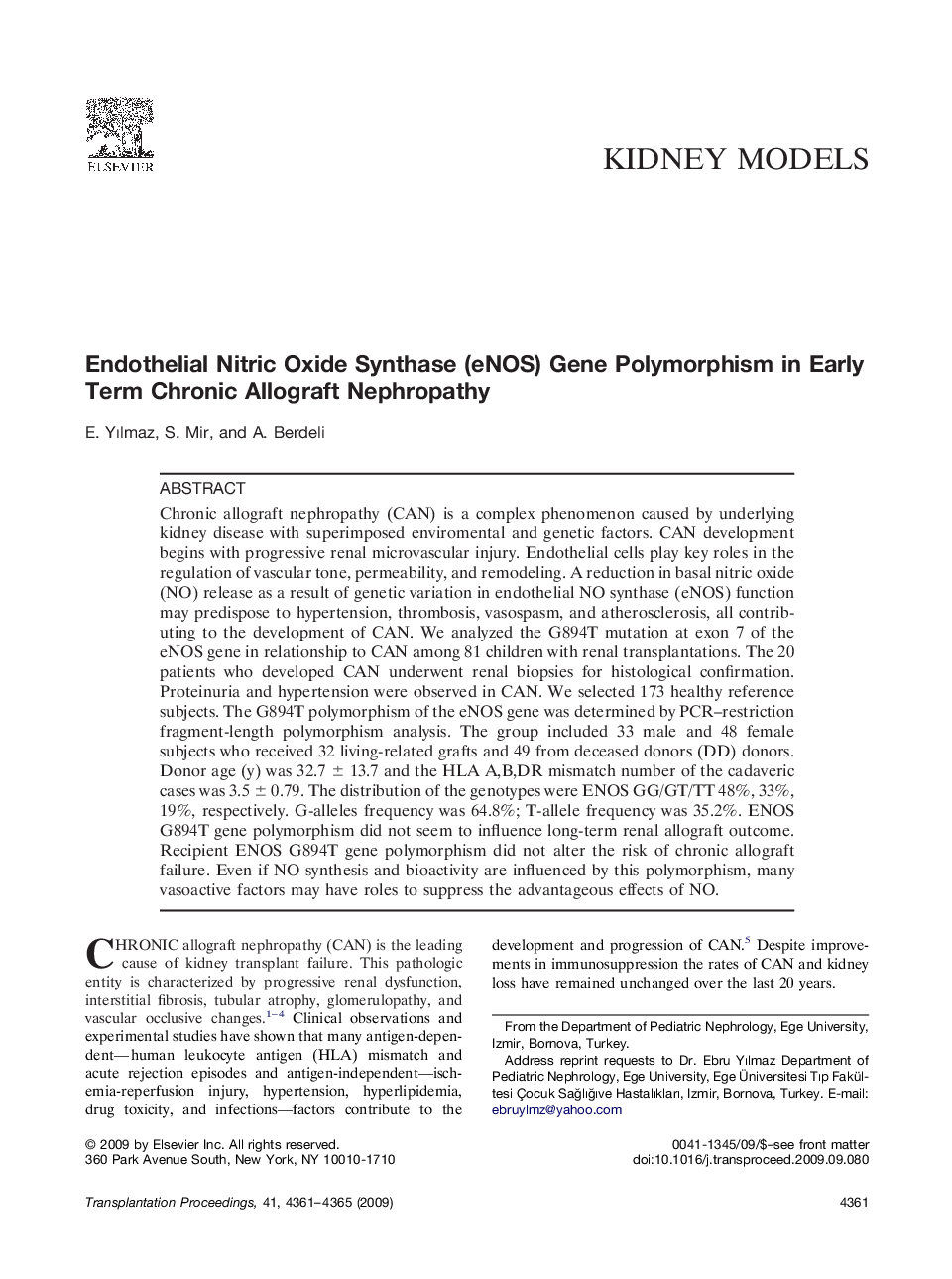| Article ID | Journal | Published Year | Pages | File Type |
|---|---|---|---|---|
| 4258520 | Transplantation Proceedings | 2009 | 5 Pages |
Chronic allograft nephropathy (CAN) is a complex phenomenon caused by underlying kidney disease with superimposed enviromental and genetic factors. CAN development begins with progressive renal microvascular injury. Endothelial cells play key roles in the regulation of vascular tone, permeability, and remodeling. A reduction in basal nitric oxide (NO) release as a result of genetic variation in endothelial NO synthase (eNOS) function may predispose to hypertension, thrombosis, vasospasm, and atherosclerosis, all contributing to the development of CAN. We analyzed the G894T mutation at exon 7 of the eNOS gene in relationship to CAN among 81 children with renal transplantations. The 20 patients who developed CAN underwent renal biopsies for histological confirmation. Proteinuria and hypertension were observed in CAN. We selected 173 healthy reference subjects. The G894T polymorphism of the eNOS gene was determined by PCR–restriction fragment-length polymorphism analysis. The group included 33 male and 48 female subjects who received 32 living-related grafts and 49 from deceased donors (DD) donors. Donor age (y) was 32.7 ± 13.7 and the HLA A,B,DR mismatch number of the cadaveric cases was 3.5 ± 0.79. The distribution of the genotypes were ENOS GG/GT/TT 48%, 33%, 19%, respectively. G-alleles frequency was 64.8%; T-allele frequency was 35.2%. ENOS G894T gene polymorphism did not seem to influence long-term renal allograft outcome. Recipient ENOS G894T gene polymorphism did not alter the risk of chronic allograft failure. Even if NO synthesis and bioactivity are influenced by this polymorphism, many vasoactive factors may have roles to suppress the advantageous effects of NO.
